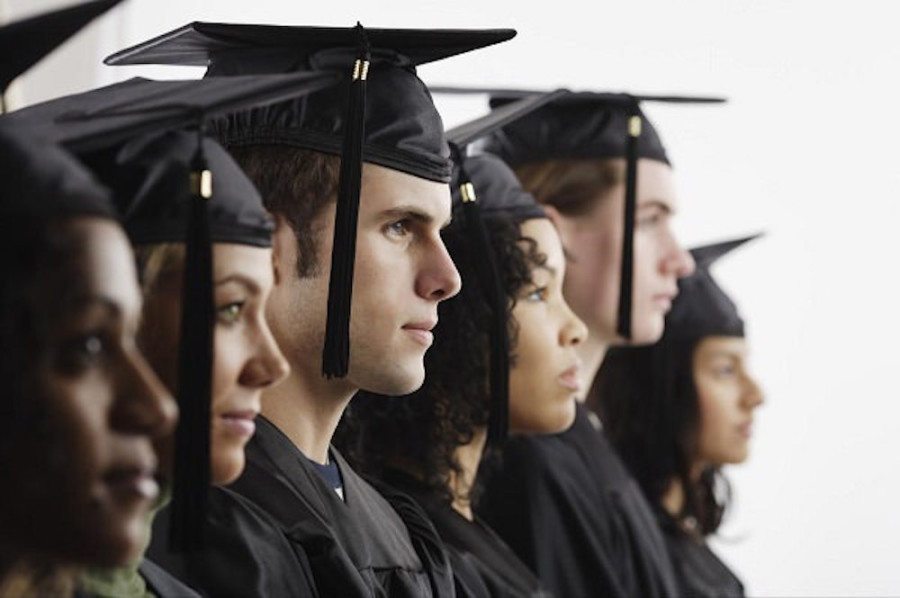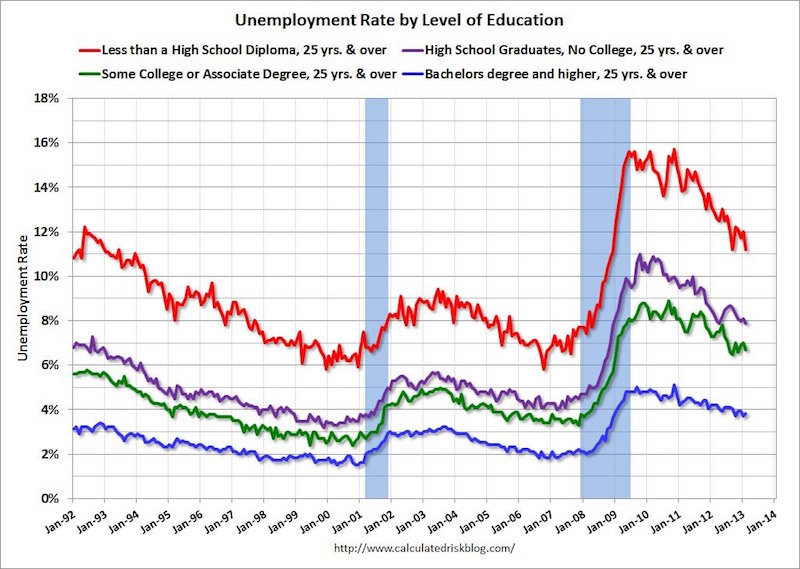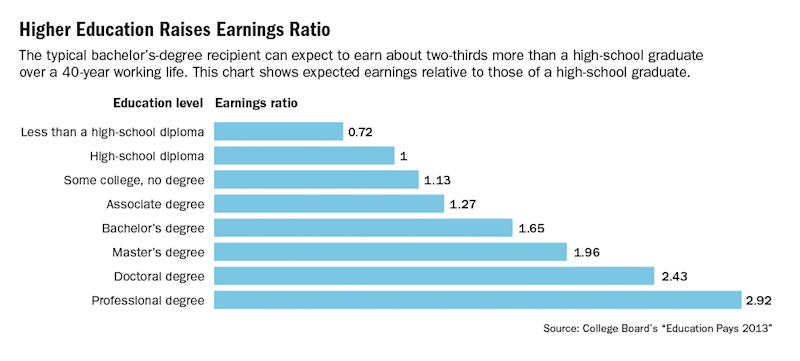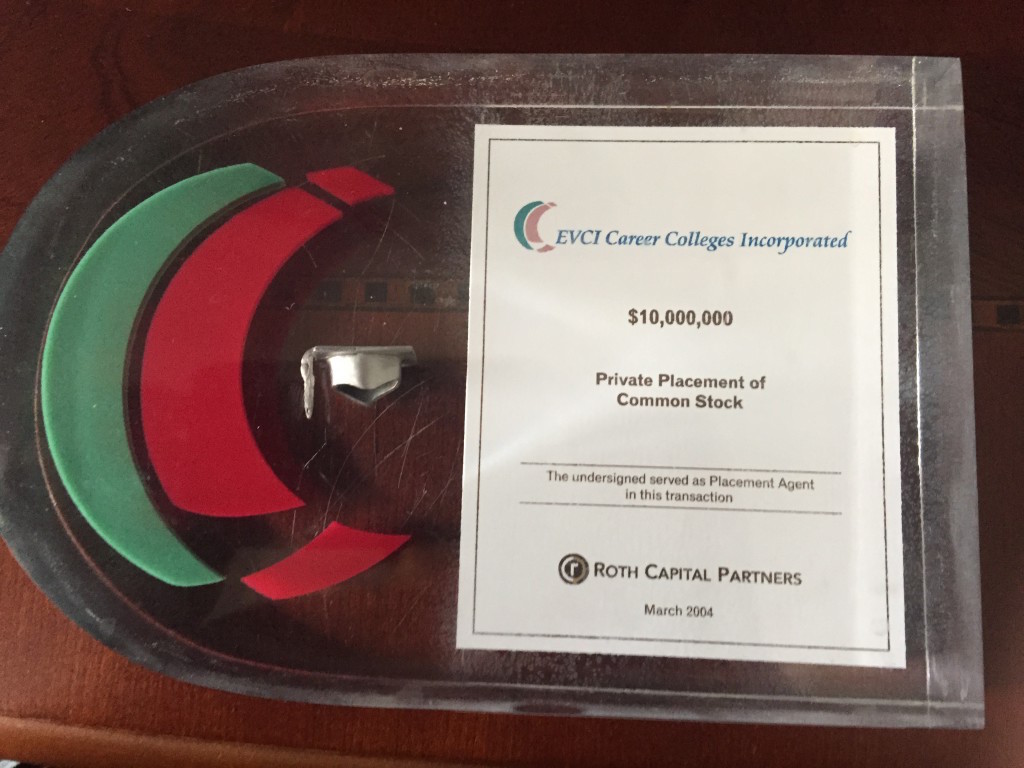Former White House and congressional advisor Ron Haskins of the Brookings Institution discovered that without a college degree, only 14 percent of Americans from the bottom fifth of parental income reach the top two-fifths. However, if they graduate college, 41 percent of the same demographic can expect to make it to the top two-fifths.
Aside from the overall higher sense of confidence and better outlook on their future college gives to college graduates, these economic figures should also be a huge factor for students pragmatically considering their future earnings and opportunities.
According to Gary Burtless and Adam Looney of the Brookings Institution, workers with a college degree earn twice as much as workers whose highest level of education is a high school diploma, and show a lower unemployment rate than those who are non-grads. In 2010, the unemployment rate was 10 percent for those with only a high school degree, but 5.4 percent for college graduates.
Over a working life time, again according to Burtless and Looney, the differential between a college graduate’s earnings and those of a high school graduate is estimated to average $570,603 — more than half a million dollars. When viewed in investment terms, they found return on investment (ROI) for a bachelor’s degree over the last 50 years was 15.2 percent. The stock market has returned 6.8 percent, long-term Treasury bills have returned 2.2 percent, and housing has returned 0.4 percent.
For students entering college, finishing and gaining a degree should be considered a savings account. Though there are short-term expenses for attending a college, the long-term investments will literally pay dividends.
Graphs:
Unemployment Rate By Level of Education
Higher Education Raises Earning Ratio
Research contribution
A. Anderson






